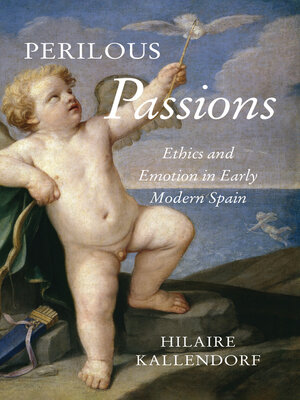Perilous Passions
ebook ∣ Ethics and Emotion in Early Modern Spain · Toronto Iberic
By Hilaire Kallendorf

Sign up to save your library
With an OverDrive account, you can save your favorite libraries for at-a-glance information about availability. Find out more about OverDrive accounts.
Find this title in Libby, the library reading app by OverDrive.



Search for a digital library with this title
Title found at these libraries:
| Library Name | Distance |
|---|---|
| Loading... |
Can feelings be wrong? Scientists agree that emotions contain both a cognitive and a physiological component. The cognitive part can be modified, while the physiological response is largely involuntary. In religious terms, the answer is clear in its legislation of heart motives: love your enemies, lust is equivalent to adultery, hate is the same thing as murder.
In Perilous Passions, Hilaire Kallendorf draws on early modern Spanish theatre to reveal how emotions have always been understood as central to ethics. Starting with a treatise on emotion, On the Passions of the Soul by Juan Luis Vives (1493–1540), Kallendorf uses pairs of opposing emotions – love/hatred, desire/aversion, joy/sorrow, hope/despair, and courage/fear – to explore how they are depicted in Golden Age plays.
The book pinpoints and probes intersections of feelings with morality. It asks: Do emotions bear positive or negative ethical overtones? Which emotions are more conducive to virtue? Are passions perceived as perilous in early modern Spain, in agreement with Neostoic principles? Or does the Catholic liturgy's emphasis on involving the corporeal senses in worship mean that bodily sensations, including feelings, are accorded pride of place – especially in drama? In asking these questions, Perilous Passions argues for the significance of theatre in emotional education.







